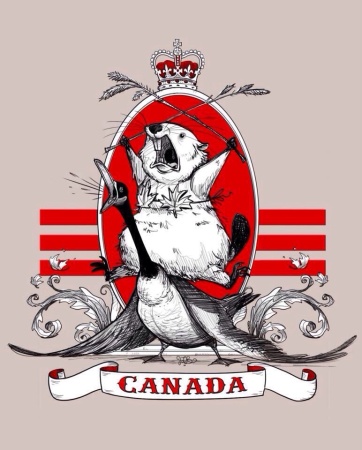The Prince Edward Island provincial elections were held yesterday and they were far more exciting than anyone was expecting. I listened to the results coming in via CBC PEI and it was announced at 8:45 pm AST that they would not turn to hockey as originally scheduled as the election results were still far from conclusive. They also commented that this was the closest election in recent memory.
In the end, the Island made history twice over. First, PEI elected its first ever openly gay premier which makes it only the second province in Canada to elect an openly LGBTQ leader. People like to mock the Island for being backwards but such insults rest on increasingly shaky ground. Not only did Islanders elect a gay man as their leader, but his sexual orientation was essentially a non-issue.
https://twitter.com/m_handrahan/status/595389127664791552
Second, for only the second time a third party has gained a seat in the provincial legislature, and for the first time that seat is held by the Green Party. Peter Bevan-Baker, leader of the PEI Green Party, was elected in a landslide district vote following an obviously successful campaign.
Other take-aways:
Many races were very close. Several districts were won by less than 100 votes with one district electing their representative by a mere TWO votes. I expect there will be a recount in that district so that number may change but the sentiment that I expressed via Twitter last night remains valid.
https://twitter.com/m_handrahan/status/595380480016515072
Having said that, I’m not really sure who I’m yelling at in that Tweet because PEI had its highest voter turnout since 1986 with 86.7% of eligible voters casting ballot.
The NDP ran a remarkably close race in District 14 (which happens to be my district) only to lose to the incumbent Liberal at the last moment when the advanced poll results were announced. For a long time it was looking like PEI would have all four colours represented in the legislature but that ultimately did not come to pass.
The PC Party made gains but their leader failed to secure his district. He will likely ask for a recount since he lost by only 24 votes but even if the results are overturned, the PC Party is almost certainly feeling that that contest was too close for comfort. And if the count stands, the Progressive Conservatives need a new leader.
Despite the fact that the Liberals maintain a majority government, the election results seem to suggest that Islanders sought change.
Female politicians didn’t make many gains this time around. Of the 31 women who ran only five were elected which means that the female presence in the provincial legislature is down by one.
People are already talking about proportional representation (which is nothing new). The new premier has hinted that electoral reform may be on his new government’s agenda and pro-proportional representation graphics are already hitting social media. We’ll have to wait and see if this discussion goes anywhere.
That’s the story of the PEI provincial election in a nutshell. I’d like to end on this note – how awkward is this handshake??

You must be logged in to post a comment.